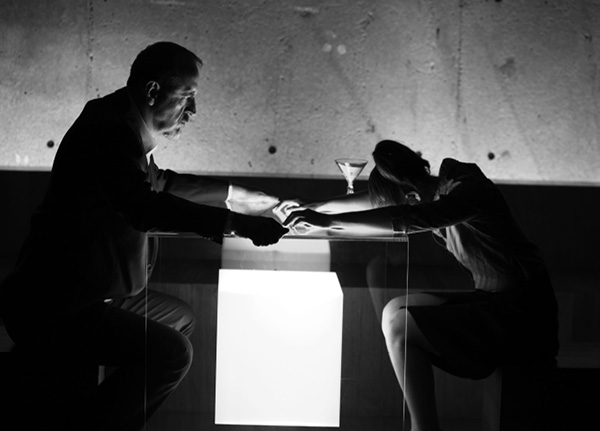
DREAMLESS LAND
first performed on
November 4, 2011
Abrons Arts Center, New York, NY
performed 13 times in 2011
NEW YORK CITY PLAYERS
Julia Jarcho; Linda Mancini, Jenny Seastone Stern, Richard Toth, Ben Williams; Mia Bienovich, Ben Kato, Bobby McElver, Jason Simms
837451331j837451331a837451331r837451331c837451331h837451331o837451331@837451331b837451331e837451331r837451331k837451331e837451331l837451331e837451331y837451331.837451331e837451331d837451331u
DREAMLESS LAND
NEW YORK CITY PLAYERS
This was a play I wrote and directed. The characters are Joyce, Haley, Carver, Morton, and Martin. The play is about a family that comes apart, and about being an orphan. I’m not an orphan and I didn’t think it was a play about a family until a friend of mine came to a reading and pointed it out. I tend to make fun of plays about families. But it’s not a play about my family, which is something people frequently assumed, interestingly, even though there really is no resemblance, I don’t think. I think it is more about a fascination with the shape of a nuclear family, and the impression left behind (like in sand) where there is no longer a family. In different parts of the play, different characters have different relationships to each other. So, it would be misleading to say that, for instance, Joyce is the mother, Carver is the father, Haley and Morton are the daughter and son, etc. We weren’t trying to tell a continuous story that would go all the way through. Instead, we were making a sequence of scenes, each of which would be a different arrangement of these people who are more or less lost in relation to each other. Also, there was a giant plexiglass cube in the middle of the stage which either provided or substituted for the UNITIES that were missing. The cube was a beautiful technology box that served as a TV, a computer, you know, everything, and was fictionally the source of information throughout; for instance, the genre of a particular scene would emerge from the cube. This was a way of thinking about mediation, and the question of how popular entertainment fills in for something we’ve lost. I would NEVER be didactic about this, I’m not at all sure we have in fact lost anything, nor is it interesting to bitch about how the media own our brains (we all know by now that they do), but there it is, a feeling of loss. You remember when someone told you how “Nintendo” got its name, what it means. And so for the writing this also meant that I would try to be without my “own voice” some of the time, try to make myself a stranger to what I was writing, which I did by writing a romance comedy scene, a spy movie scene, a horror movie scene, trying to be as close as I could to these forms that already exist and trying to do without the motivation of expressing something unique to me. That also would be a kind of orphanhood, severing yourself from what’s yours, then making a substitute structure from what’s lying around.